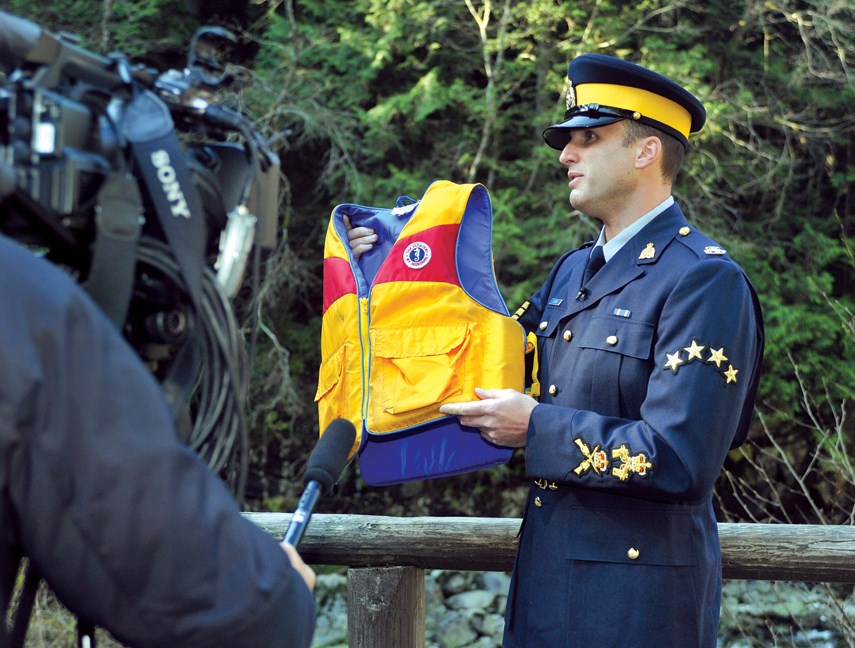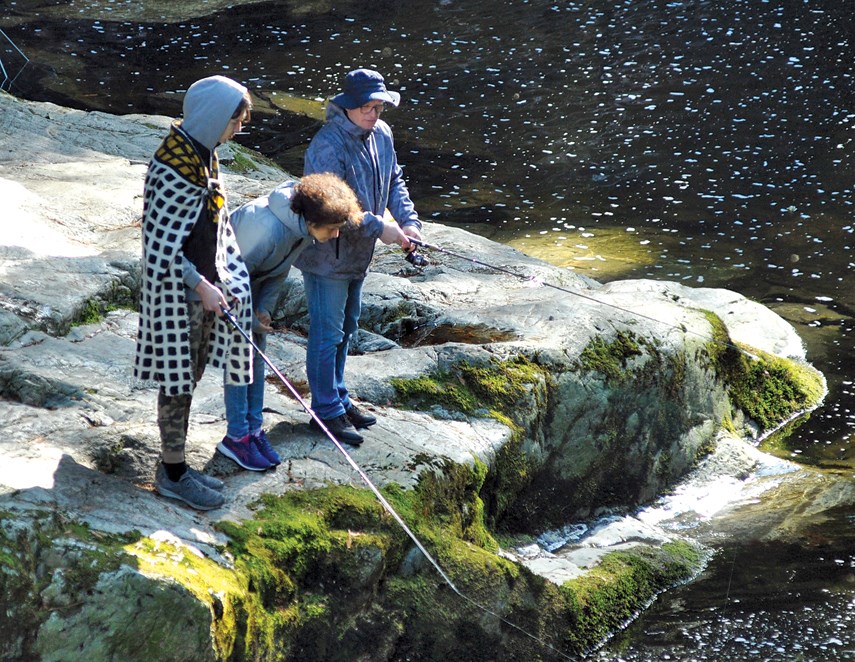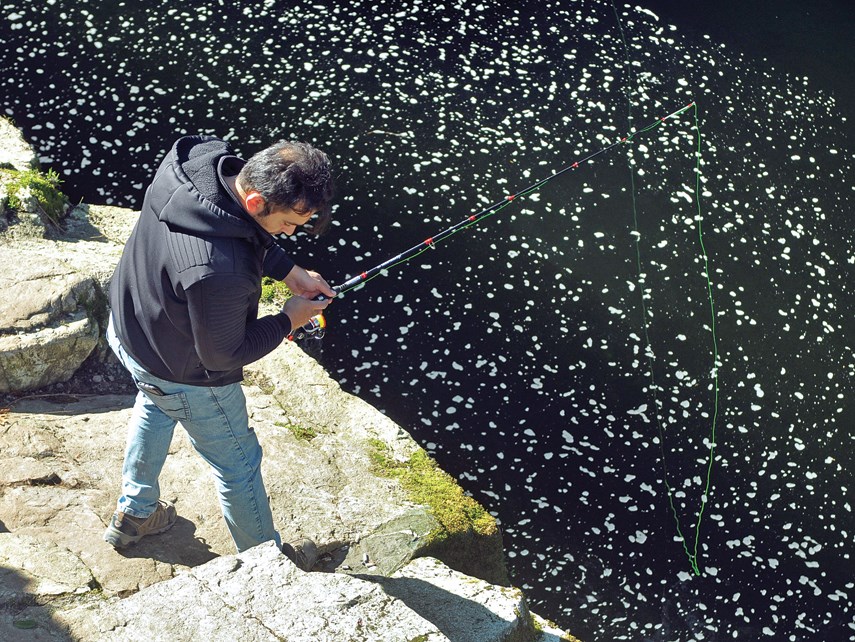On a cool fall afternoon this week, anglers were perched on ledges of rock overlooking the Capilano River, casting lines that glittered in sun.
The salmon swimming languidly below the green surface of the Cable Pool and the picture-perfect light filtering through overhanging tree branches was a sharp contrast to the tragic story of a fisherman who died Sunday after falling into the river here.
Four friends were fishing near Cable Pool on the Capilano when one of the men tried to cross the river to get a fishing line that had snagged, according to the RCMP. When the man lost his footing and fell in, one of his friends went in after him but was unable to reach him before the man was swept out of view.
The man was pulled from the water in medical distress by emergency responders but died later at St. Paul’s Hospital.
Dave Steele, owner of Highwater Tackle in North Vancouver, said the death of the 30 year-old man was likely preventable.
“It’s sad because it’s so unnecessary,” he said.
Steele said he knows of too many times when people fishing in the Capilano have had very close calls, and other times when anglers have died after falling into the fast-running water – most of them because they weren’t aware how hazardous the river can be.
“People venture out and they’ve looked at it on YouTube,” he said. “They have very little understanding of the hydrology (of the river) and the dangers.”
On Tuesday, local RCMP and District of North Vancouver firefighters were back at the Cable Pool – this time not to rescue anyone but to educate anglers about the dangers near the river.
Fishing on the Capilano River is it is a popular pastime at this time of year, said Sgt. Peter DeVries of the North Vancouver RCMP. But the beauty of the area can lull people into a false sense of security, he said. “I think that it tends to diminish people's perception of the river as being actually quite dangerous.”
The river is fast moving, and it’s very cold, he said. That, combined with the hydrology of the river, make it very difficult for people who fall in to rescue themselves.

“We have highly trained people from the fire rescue service, and from our search and rescue, who know how to extract people from of these waters and it's a very technical process,” he said. “Because there are so many hazards in the river. It's not just being in the water and being swept down the stream. There are backeddies. There are dropoffs, there are churning waters, and there are logs, branches, things that can trap you under the water.”
Capt. Grant Smith of District of North Vancouver Fire and Rescue said when someone falls into the Capilano, the currents take you “right into the middle (of the river)”
It only takes a minute or two in the frigid water to lose motor skills, making it impossible for a person to grab hold of anything, he said.
Anglers who don’t belt their hip waders tightly can also find them quickly filled with water “that’s pushing you like a bulldozer” down the river, he said.
That’s why emergency responders are imploring anglers to wear lifejackets.
"If you go down here any day when there are people fishing, you'll see not a lot of people are wearing life jackets, if any at all. We really want to shift that culture," said DeVries " . . . we want to really implore that they wear lifejackets, because it can make the difference between life and death.”

Amin Jaf, a construction worker from Richmond, was among the anglers fishing from the rock ledges above the Capilano Tuesday.
Jaf said it was his first time fishing the Capilano after he read about it on social media. “I don’t fish a lot,” he said.
Jaf – like everyone else fishing on Tuesday – wasn’t wearing a lifejacket, but said it would be something he’d be open to considering.
Around fast-moving water, foam lifejackets that lift the chest higher out of the water and offer some protection against rocks are a better choice than the flimsier self-inflating variety, said Walt Warner, assistant fire chief with District of North Vancouver Fire and Rescue.
Both DeVries and Warner said it will take time to shift the culture around anglers wearing life jackets.
“When we were young, we didn't wear bike helmets or seat belts. Now if you see somebody riding without a bike helmet, the first thing you're thinking, is ‘Okay, this guy is idiot,'" said Warner. "So that, to me, this is just another example where we can educate our community so that 10 years down the road, seeing somebody (fishing at the river) without a PFD or a life jacket, it’ll look bizarre.”



